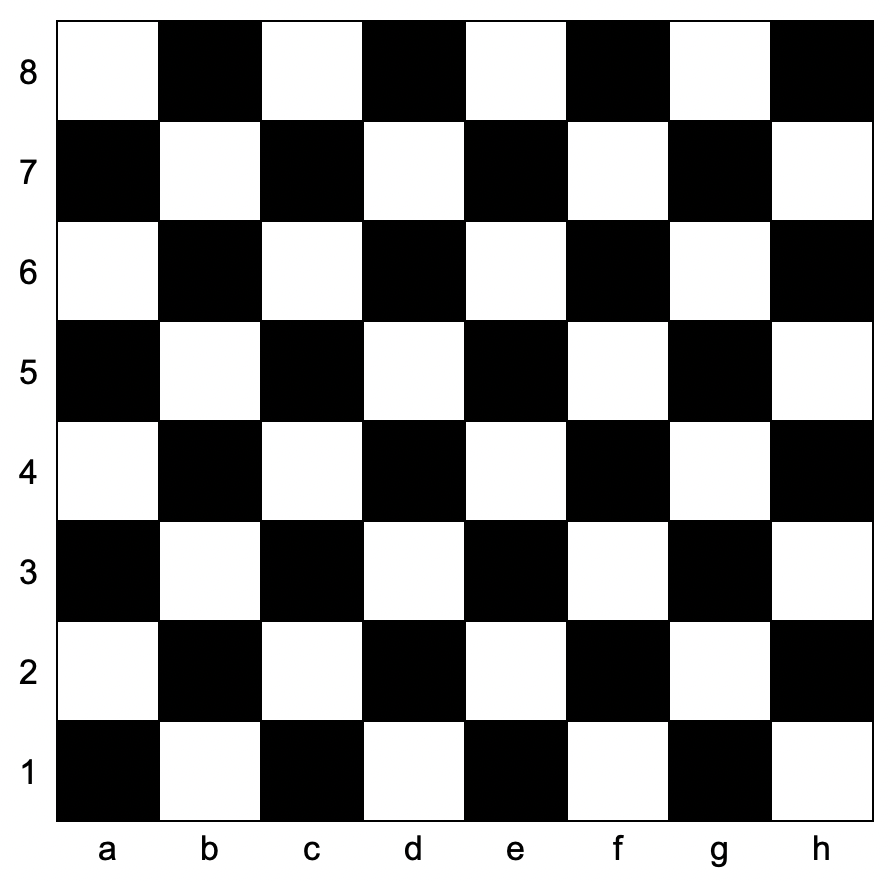You are given coordinates, a string that represents the coordinates of a square of the chessboard. Below is a chessboard for your reference.

Return true if the square is white, and false if the square is black.
The coordinate will always represent a valid chessboard square. The coordinate will always have the letter first, and the number second.
Example 1:
Input: coordinates = "a1" Output: false Explanation: From the chessboard above, the square with coordinates "a1" is black, so return false.
Example 2:
Input: coordinates = "h3" Output: true Explanation: From the chessboard above, the square with coordinates "h3" is white, so return true.
Example 3:
Input: coordinates = "c7" Output: false
Constraints:
coordinates.length == 2'a' <= coordinates[0] <= 'h''1' <= coordinates[1] <= '8'
Solution: Mod2
return (row_index + col_index) % 2 == 0
Time complexity: O(1)
Space complexity: O(1)
C++
|
1 2 3 4 5 6 |
class Solution { public: bool squareIsWhite(string coordinates) { return ((coordinates[0] - 'a') + (coordinates[1] - '0')) % 2 == 0; } }; |